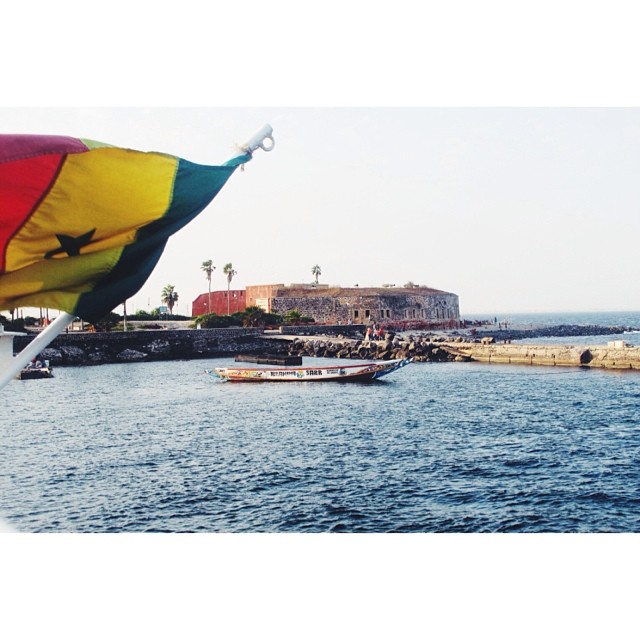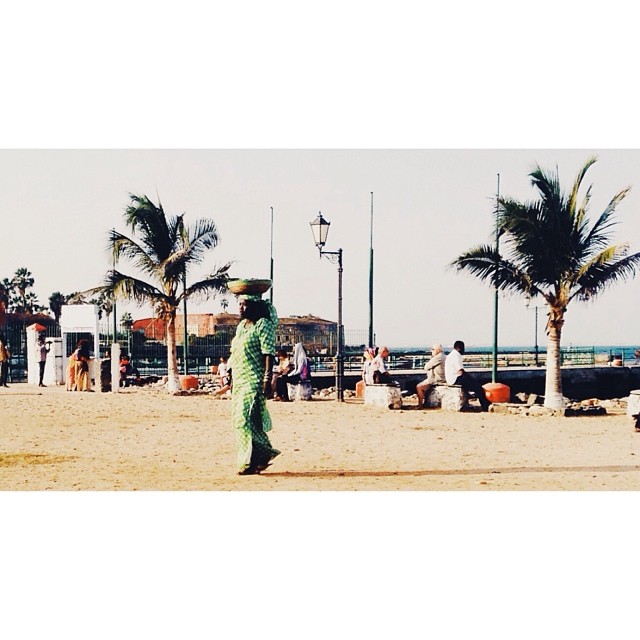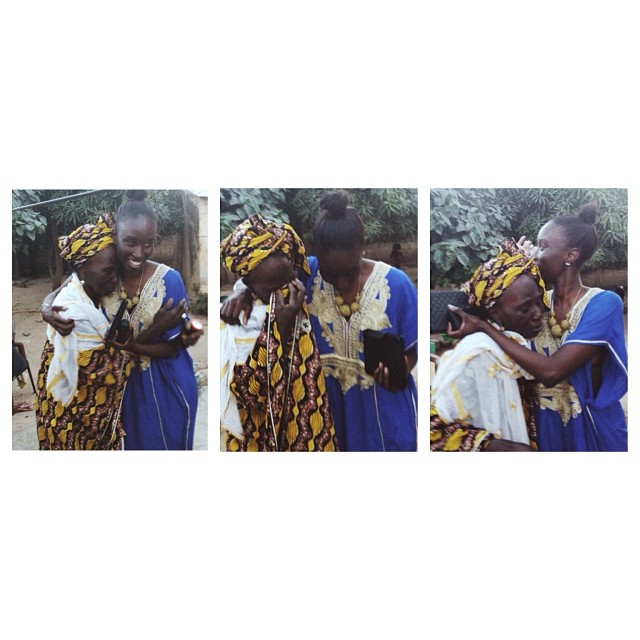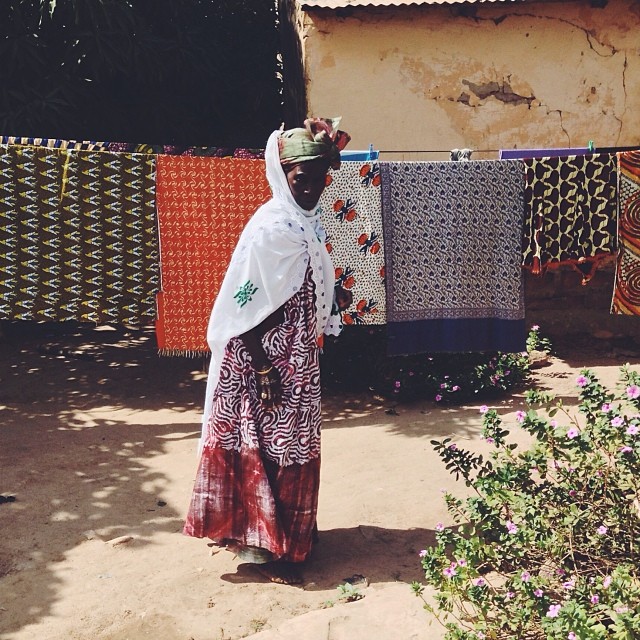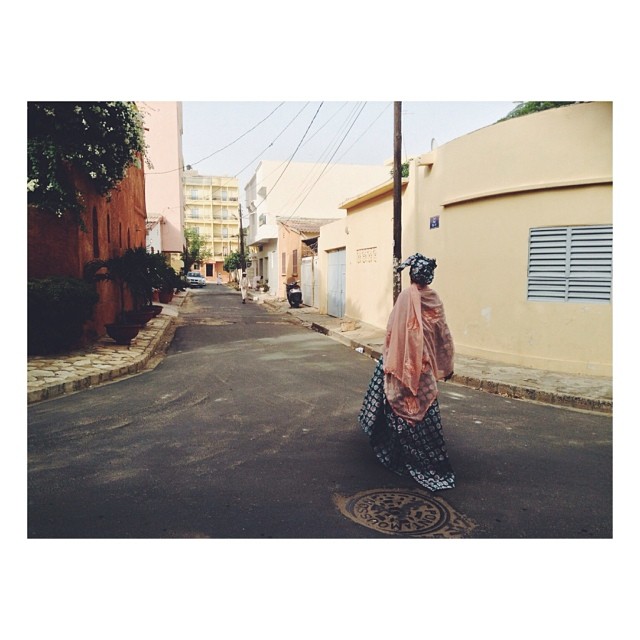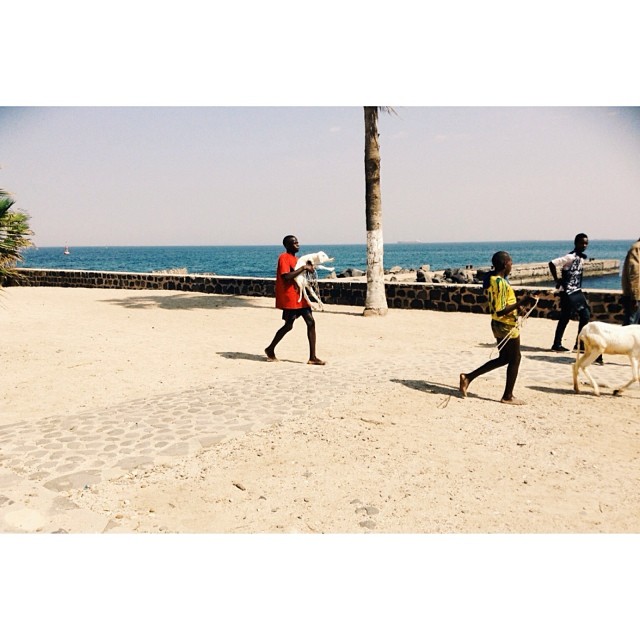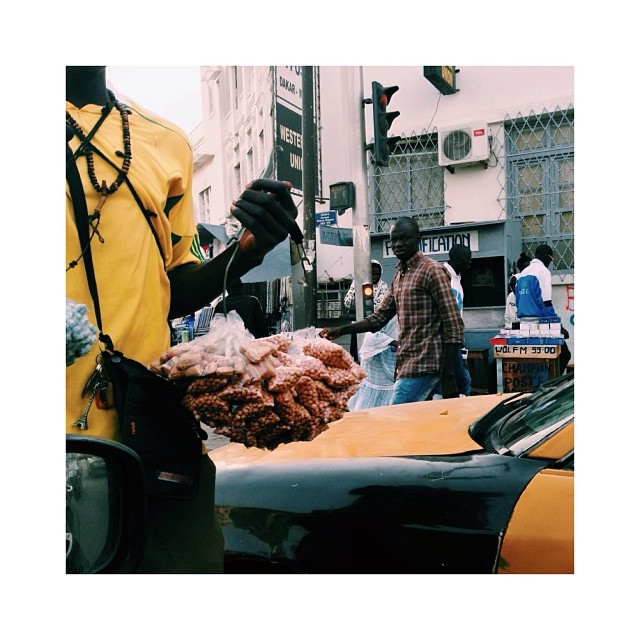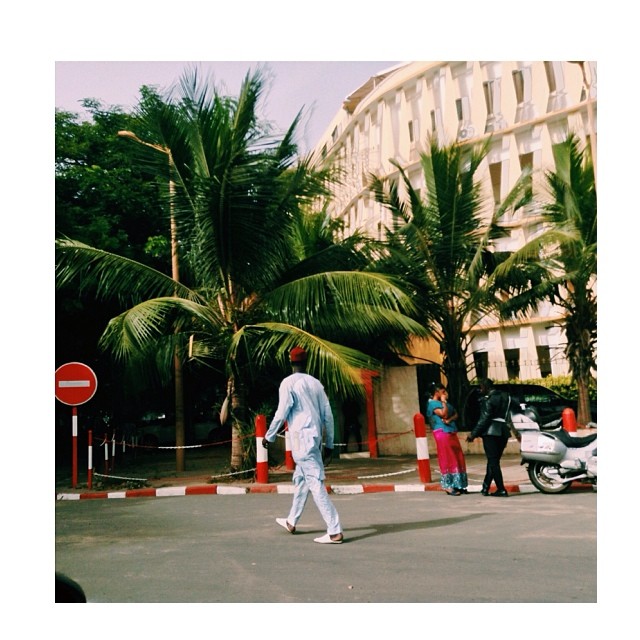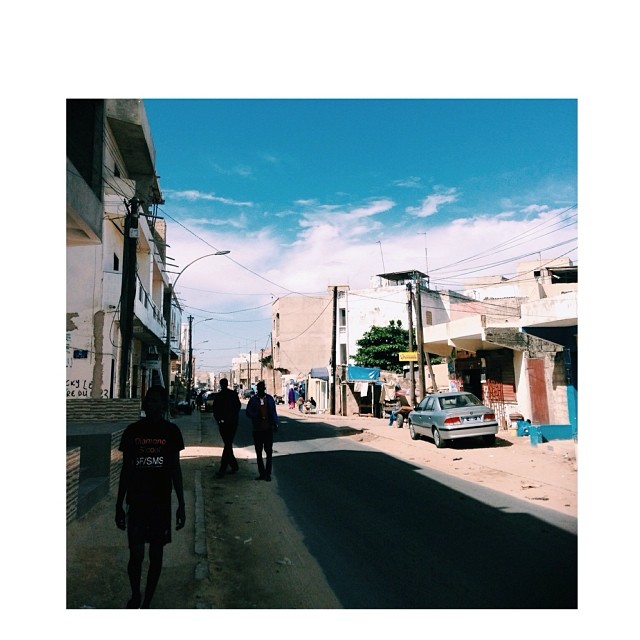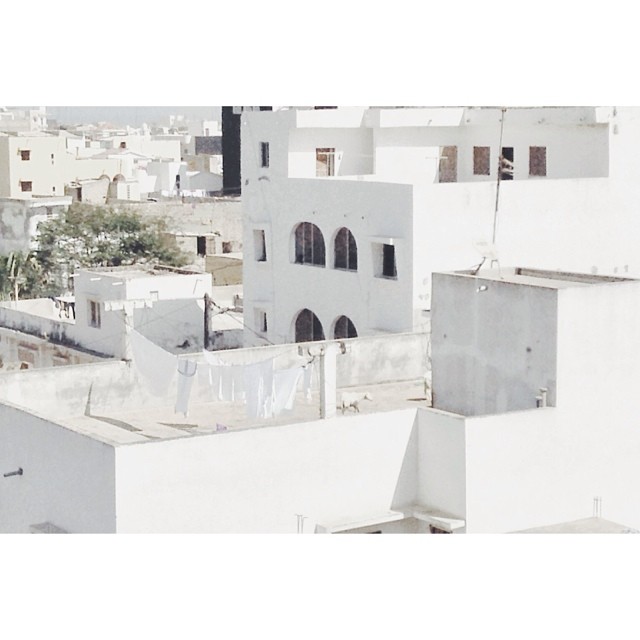Senegal with Amy Sall.
Amy Sall is not a hired travel photographer, nor is she a photojournalist on assignment. Yet, her images of her recent trip to Senegal are far more moving, far more real, far richer and possess more authenticity than any embedded journalist could ever attempt to capture. The difference between Amy Sall and other photo amateurs or professionals? Her attachment to Senegal is personal. She’s a first-generation American, born and bred, but culturally, Senegal has never been far away. Additionally, she’s unburdened with the need or pressure to tell a specific kind of story. The narrative was a story to be told along the way, along her path of self-discovery.
For these reasons, and more, I fell in love with her posts on instagram as she visually documented her emotional visit to a place that isn’t quite home, but isn’t a foreign country as well. Through the story she creates with her images, Amy’s photo-documentation illustrates the need for Africans to tell their own stories through any and whatever medium is at their disposal.
Here’s my interview with Amy Sall as we discussed the emotional journey of her multicultural upbringing:
In about five sentences or less, briefly tell us a little about yourself. Who is Amy Sall? How would you introduce and define yourself to those who don’t know you?
I am a 23-year old, first generation Senegalese-American, born and bred in New York City, trying to navigate my life with my best foot forward, while staying true to my values. I think in all aspects of my life, there’s the inherent nexus of integrity, selflessness, and grit. What I do and who I am are intrinsically linked. Currently, I’m a Masters Candidate in Human Rights at Columbia University, focusing on children’s rights and youth issues in Sub-Saharan Africa. In the past, I’ve worked within a few sectors of fashion where I’ve had experience at Vogue, written for Lurve Magazine, and worked for Rick Owens to name a few.
You’re first generation Senegalese-American, born and raised in the US. What was your experience growing up being a part of two very distinct cultures?
It was interesting, but not easy, growing up between two cultures. It’s not the easiest experience to sift through because it’s quite layered and muddled with all sorts of intricacies. I can say that there were times where my “Africaness” and my “Americaness” had points of contention. I was born only a year after my parents came to the states, so I grew up in a very culturally Senegalese home. Everything in our home was inherently Senegalese, from the food, to the music, to how daily life was constructed.
However, once I stepped outside my home, I was confronted, daily, with the fact that even though I am, in the literal sense of the word, African-American, I did not fit in with the African-American kids. They saw me as other. They saw me as African. They saw me as a dark African. So, it was difficult to reconcile that tension between two cultures as a child. My being rejected by my classmates (and when you are a child, the approval of your peers means everything) led to the resentment and disavowal of my culture and dark skin.
My childhood in that regard was tricky, and it unfortunately caused some damage during my transition into adolescence. There eventually came a point when I just didn’t care about what people thought, and my parents had a heavy had in getting me to that point. Straddling the line between two cultures became easier, and eventually something I thought less about. The biggest relief was ridding the shame I felt toward my “Africanness” as a child. Being African is absolutely the most beautiful thing to me.
On your blog, you mention that you hadn’t been back to Senegal in ten years. What prompted your visit back home? What was the experience like?
What prompted me to go to Senegal was simply realizing that I no longer had the excuse not to go. The last time I was there, I was 13 or 14. The fact that I was approaching the ten-year mark of not being in Senegal was incredibly important and symbolic to me. I decided that I wouldn’t let another year pass without going to Senegal. The possibility of my grandmother’s dying without a chance to see them again started to weigh heavily on me.
Both my grandfathers died when I was younger. One of them I’ve only seen once, the other I’ve seen twice. I regret that I wasn’t able to get to know my grandfathers. The reasons for the 10- year gap vary, but I will attribute them to the unfortunate ills of migration. It wasn’t always easy for my parents to take my siblings and I to Senegal often. Those opportunities did not always present themselves. It’s a sad realization to know that you can’t go home and see your family as often as you would like to, for reasons beyond your control.
So I decided, now that I’m older, nothing was to stop me from going back home and seeing my family. I wanted to get closer to my family, especially with my grandmothers, and develop a real relationship. I wanted to deepen my sense of self and rediscover my roots. It was also important for me to make this trip so that I could see the socio-economic issues of the country with my own eyes, especially as they pertain to children and youth. Much of my graduate research is centered particularly on Senegal, so being on the ground was necessary for the work I’m doing academically, and aim to do professionally.
During your trip back to Senegal you visually documented your stay there by taking and sharing photos on instagram. Was this something you decided before travelling, or was it done on more of a whim?
I definitely knew I wanted many photos to have as keepsakes, but there were many times where I didn’t bring a camera with me because I just wanted to truly feel Senegal and be immersed in it. When I did have my camera, all I was trying to do was simply capture the country in the truest way possible. I did not want to glamorize or romanticize Senegal. It is an incredibly beautiful, rich and vibrant country, with beautiful people, however there are very real problems that I felt were not to be excluded. I wanted to share a holistic view of Senegal, from the colors of Gorée to the talibés begging in the streets.
You’ve been blogging for quite some time now so you’re no stranger to sharing bits and pieces of your life online, something I enjoy doing myself. How important was it for you to share this part of your personal life online? How has the response been?
I like the idea that with the Internet, I can carve a space for myself, curate it however I please, engage in a dialogue, and maybe even teach someone something new. I had no expectations when I posted my photos on social media. I was surprised that they garnered the response that they did. People really took a liking to them. I know absolutely nothing about photography. A country as beautiful as Senegal makes it quite easy to photograph. It made me happy that people were appreciating and enjoying my journey, and were able to take part in it. They were discovering Senegal as I was rediscovering it, so it became this shared experience.
Would you ever consider compiling and publishing your photographs and experience into a photo-book of some sort?
Working on it!
That’s fabulous! Can’t wait ‘til it’s published. Lastly, what are three words you’d use to describe Senegal?
Vibrant, beautiful, home.
Thank you so much, Amy!
All images via Amy Sall’s instagram.
Amy Sall’s site.
Twitter | Facebook | Pinterest | Google+ | Soundcloud | Mixcloud | Instagram | Newsletter
All Africa, All the time.
>via: http://amysall.com

